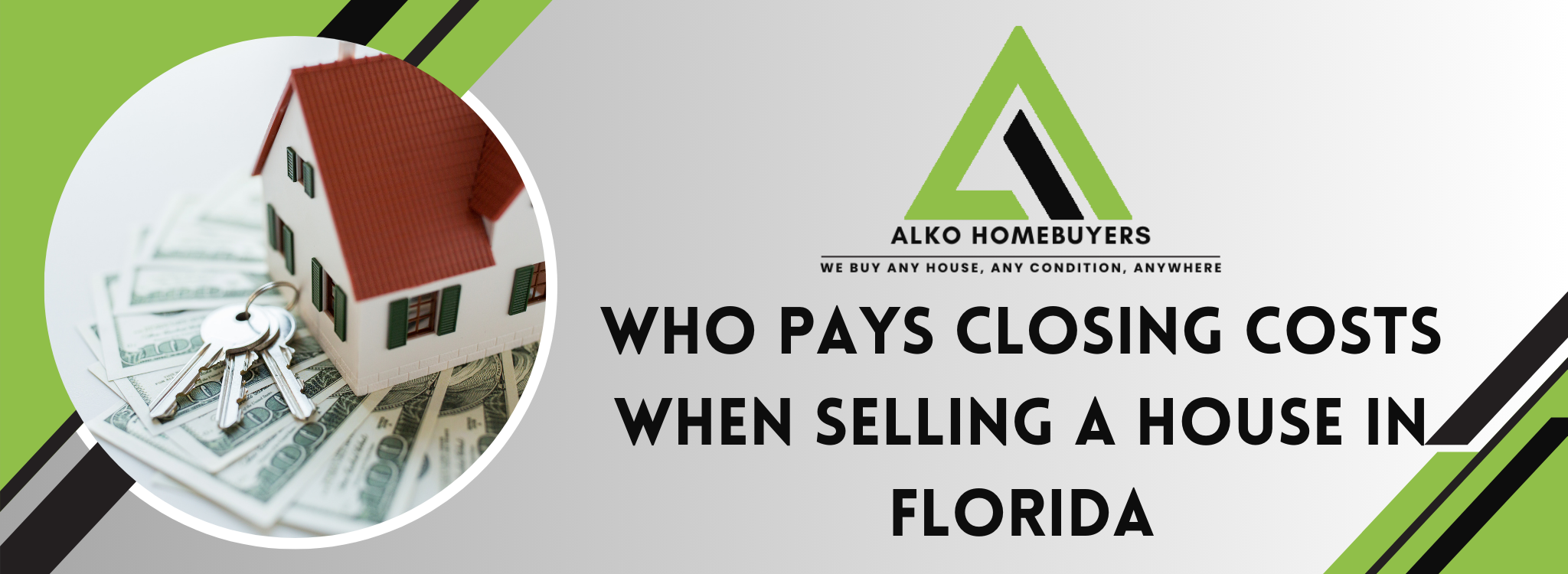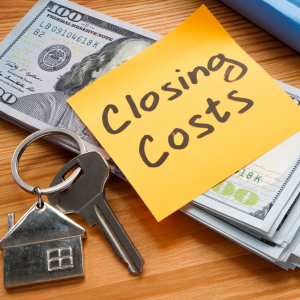
Sellers and Their Role in Florida Real Estate Closings

In the Florida real estate market, sellers are vital in completing transactions, especially during the closing phase. This stage finalizes the sale, transfers ownership, and settles any financial obligations related to the property. Understanding seller responsibilities and associated costs helps ensure a smooth transaction.
What costs are typically covered by sellers?
Seller closing costs in Florida often include several fees necessary for completing the sale. Common expenses for sellers in Florida include:
- Title Insurance: This protects the buyer from disputes over property ownership.
- Property Taxes: Sellers usually pay taxes up until the closing date.
- Real Estate Commission: Sellers typically cover the agent’s commission fee, a percentage of the sale price.
- Deed Recording Fees: These are the costs for recording the deed and other required documents.
- Documentary Stamp Taxes: A tax applied to documents that transfer property ownership.
Sellers should anticipate these Florida home selling costs to avoid surprises during the transaction.
How do seller concessions affect closing costs?
Seller contributions to closing costs in Florida can greatly affect the overall expenses during a real estate transaction. Seller concessions are amounts sellers agree to pay toward the buyer’s closing costs, which can be strategic during negotiations.
- Negotiating Closing Costs: By agreeing to cover certain costs, sellers can make their property more appealing to buyers who may lack funds for both purchase and closing expenses.
- Closing Cost Negotiation: Discussing specific fees with buyers can speed up the sale, particularly in competitive markets.
These concessions can be valuable for sellers aiming to close quickly or attract offers in buyer-driven markets.
Can sellers negotiate who pays for closing costs?
While sellers typically cover certain costs, they can negotiate who pays for closing expenses. During negotiations, sellers and buyers might decide to split closing costs.
- Negotiating Closing Costs in Florida: Open communication can lead to agreements where costs are shared, reducing the burden on one side.
- Split Closing Costs: Sellers might negotiate to split costs evenly or agree to cover specific fees while the buyer covers others.
Understanding these options allows sellers to remain flexible and engage in successful transactions aligning with their financial goals.
These insights into sellers’ roles and responsibilities in Florida real estate closings provide clarity and guidance. For more help with your transaction, consider reaching out to professionals like ALKO Homes Buyer for expert advice tailored to your needs.
Determining Seller Responsibilities in Closing Costs
What legal obligations do sellers have regarding closing costs?

In real estate, especially in Florida, sellers must understand their legal responsibilities concerning closing costs. Typically, sellers pay certain fees, such as title insurance premiums, real estate commission fees, deed transfer taxes, and any liens or judgments on the property. Florida regulations require sellers to disclose these financial duties in the contract for transparency. Following these rules helps sellers avoid disputes and ensures a smooth transaction.
When can a seller offer to pay the buyer’s closing costs?
Sellers may choose to help with the buyer’s closing costs to make their property more appealing. This is common in a buyer’s market where there’s high competition. In Florida, sellers might contribute to closing costs to speed up the sale or attract more offers. The purchase agreement usually outlines how much and under what conditions the seller will contribute. This assistance can reduce the buyer’s upfront costs, potentially leading to quicker deals.
Are there limits to what sellers can pay in closing fees?
It’s important to know the limits on what sellers can pay towards closing fees. In Florida, sellers usually cover certain customary closing costs, but they may agree to pay additional expenses based on negotiations. However, there are limits, often set by the lender’s policies and the mortgage type, on how much a seller can pay towards the buyer’s closing costs. To understand the closing cost responsibilities accurately, both parties should consult their real estate professionals or legal advisors about standard practices and any negotiated changes in these fees.
Strategies for Sellers to Reduce Closing Costs
What methods can sellers use to minimize their expenses?

Sellers in Florida can use several methods to cut down on closing costs. It’s important to understand the breakdown of these costs. By knowing which fees are negotiable, sellers can aim to reduce or cut out unnecessary expenses. Many sellers, for example, negotiate with buyers to share some closing costs like title insurance or document preparation fees. Searching for service providers such as title companies and attorneys can help find competitive prices. Reviewing the closing statement carefully to spot duplicate or unexpected fees can also lead to savings.
How does choosing the right real estate agent benefit sellers?
Choosing a knowledgeable real estate agent can significantly help reduce closing costs. Experienced agents have insights into the Florida real estate market and understand transaction costs well. They can negotiate effectively with buyers and others involved, often securing agreements that favor sellers. These agents can manage negotiations over repair credits or concessions to lower closing costs further. With their expertise, sellers often save money and experience a smoother transaction.
Is it possible for sellers to claim tax deductions on closing costs?
Usually, sellers can’t directly deduct most closing costs. However, understanding Florida’s closing cost regulations can help identify potential tax benefits. Some costs may be deductible if they relate to business activities involving the property or meet specific IRS rules. For instance, some selling fees might be added to the property’s cost basis, which could lower capital gains taxes. Consulting a tax professional is essential to applying these rules correctly and complying with tax laws. Knowing about seller closing costs in Florida can help spot expenses that offer tax advantages.
Understanding Common Seller Fees in Florida
What are documentary stamp taxes, and who pays them?

When a property is sold in Florida, the seller usually pays documentary stamp taxes. These taxes are charged on the property’s sale price and are a part of the typical seller closing costs in Florida. Sellers must account for this when they plan their finances for the sale.
How does title insurance work for sellers?
Title insurance is important in Florida real estate deals. It protects against claims or legal issues related to property ownership. Sellers should be aware of Florida title insurance costs as they are part of the closing settlement charges. While buyers normally purchase their title insurance, sellers must ensure a clear title, aiding a smooth transaction.
Do sellers need to pay any escrow or attorney fees?
Sellers in Florida might also need to pay escrow and attorney fees. An escrow account holds funds until the sale conditions are met, protecting both the buyer and the seller. Attorney fees cover the sale’s legal aspects and are included in the legal closing costs in Florida. Sellers should factor these into their overall budget to fully understand the costs of selling a property.
For more detailed information and guidance on seller fees in Florida, visit ALKO Homes Buyer for resources and assistance navigating the real estate market.
Comparing Buyer and Seller Closing Costs
How do seller costs differ from buyer costs?

Knowing the difference between seller and buyer closing costs is important in real estate, especially in Florida. Seller closing costs include real estate professional commissions, title insurance, and recording fees. These costs can greatly affect the seller’s final earnings from selling a home.
On the other hand, buyer closing costs usually cover loan-related expenses, appraisal fees, and home inspection charges. In Florida, buyers also tend to pay for their title insurance and the lender’s title insurance, which adds to their costs. Understanding these differences helps during negotiations over Florida home selling costs and buyer closing costs.
What are the mutual costs shared by both parties?
The seller and buyer commonly share some fees in a real estate transaction. These include escrow fees, which ensure funds are held securely until all sale conditions are met. Both sides may also share real estate professional fees and certain regulatory expenses. In Florida, negotiating these costs can help split them fairly.
Florida closing cost regulations outline how these fees should be divided, often requiring careful negotiation. Both parties might agree to share other costs during the closing process. Managing these shared costs effectively can lead to a smoother transaction.
Which party usually pays more in a typical Florida home sale?
Figuring out who pays more in a typical Florida home sale often depends on the deal terms. However, the seller usually covers more of the closing costs. Seller closing costs often involve big-ticket items like real estate professional commissions and property taxes, which generally overshadow the buyer’s expenses.
Still, the buyer faces significant costs, such as mortgage-related expenses, inspections, and appraisals. In Florida, who pays more can vary, but sellers often contribute more due to the common distribution of closing costs. Knowing these dynamics is key when planning for a property transaction.
These findings apply across all of Florida, including areas in and around Hampton, Orlando, Jacksonville, St. Petersburg, Tampa, and Hollywood.
If you need further assistance, please get in touch with us at (904) 508-0207. visit our website, to learn more about our company.
FAQs:
What are the typical closing costs for a seller in Florida?
In Florida, sellers typically pay real estate professional commissions, title insurance, documentary stamp tax, and estoppel fees. Knowing these costs helps you budget when selling a property.
How do sellers in Florida handle transfer taxes?
Sellers in Florida generally pay the documentary stamp tax, a type of transfer tax based on the home’s sale price. Planning for this expense is important.
Can closing costs be split between buyers and sellers in Florida?
In Florida, splitting closing costs is negotiable. While the seller often pays fees like the documentary stamp tax, other costs can be negotiated in the sale contract.
Are there closing cost calculators available for Florida home sales?
Various online closing cost calculators estimate expenses for buyers and sellers in Florida, considering factors like location (such as Jacksonville or the coast) and property type.
How does a condo closing in Florida differ from a single-family home?
Unlike single-family homes, Condo closings in Florida may involve extra HOA fees and estoppel requests. Estoppel certificates show any outstanding dues that must be addressed before closing the sale.
What are some common legal fees sellers face in a Florida home sale?
Sellers often face legal fees for attorneys who prepare and review documents. They might also pay for title searches and handling estoppel issues required by an HOA.
How can sellers prepare for potential lawsuits related to closing costs?
Sellers should ensure correct documentation and understand their responsibilities to reduce lawsuit risks during closing. Consulting a lawyer with Florida real estate experience can be helpful.
Do sellers offer closing cost assistance to buyers in Florida?
Sellers in Florida may offer closing cost help to buyers as part of negotiations. Depending on the agreement, lowering the buyer’s out-of-pocket costs can make the sale easier.
Key Insights
- Understanding closing costs in Florida is essential for both sellers and buyers. Our guide explains who usually pays closing costs in Florida and how these expenses are typically divided.
- Use our closing costs calculator to estimate potential expenses. Factors like home construction and property location can affect the final charges.
- Learn about Florida title insurance costs and their role in home sale expenses. We explain standard closing costs for better clarity.
- Discover what typically makes up the seller’s closing costs in Florida, such as property transfer and realtor fees. Our insights cover customary and legal closing costs practices.
- Explore options for closing cost assistance in Florida, including seller contribution and buyer vs seller responsibilities. We offer strategies for closing cost negotiation.
- For sellers in Philadelphia or those considering For Sale by Owner (FSBO), we advise on managing discount brokers and home selling fees in Florida.
- Compare FHA loans with conventional options to understand their effects on mortgage terms, down payments, and loan origination fees. Our FAQs help you plan effectively.
- We explain different closing fee allocations in Florida for cash and mortgage buyers, detailing the closing procedure costs and closing settlement charges.
- Consider how HOA fees, debt, and credit reporting can impact out-of-pocket expenses. Our examples simplify these important financial aspects.


